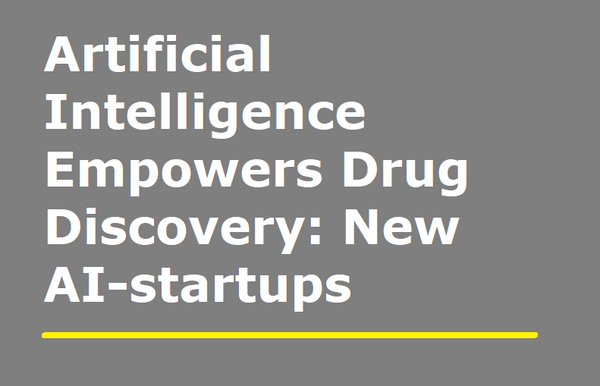A Drug Repurposing Case By Biotech Startup Forty Seven Inc
Drug repositioning is a smart and cost-effective approach used by some pharmaceutical companies to re-invent their previously successful drugs in a new role and generate extra value from existing assets.
Pharmaceutical companies find drug repurposing programs largely beneficial over usual drug development from scratch. because they allow saving money on R&D, toxicity tests and other different trials already conducted with a known drug. The risks of failure at a later stage of repurposed drug development are lower, therefore the whole project becomes more attractive from the investor’s point of view.
Another benefit comes from easier and less expensive marketing of the already known drug in a new capacity. As long as intellectual property issues are manageable, drug repositioning projects are prone to success.
A history of success
A huge success in drug repurposing history was achieved when Pfizer’s Viagra re-emerged as a best-selling erectile dysfunction remedy, following initially quite unsuccessful trials of Sildenafil towards curing hypertension and angina pectoris.
Another notable case describes a pain-controller Buprenorphine, repurposed in a higher dosage as a cure for the treatment of opioid addictions. Multiple other examples include Requip, Colesevelam, Gabapentin, and its chemical cousin Pregabalin, Plerixafor and others.

This year’s paper Drug Repurposing Is a New Opportunity for Developing Drugs against Neuropsychiatric Disorders describes new opportunities and existing issues in using this approach to identify novel cures for CNS disorders.
A recent case: Anticancer drug shows promise for heart disease
Forty Seven Inc., the Stanford spinout company, has been developing anti-CD47 antibodies for cancer treatment for a while. CD47 is a molecule which signals macrophages “do not touch” message evading a natural cell destruction process for cancerous cells. Blocking this message is a way to allow macrophages perform their duty and eat up malfunctioning cells. The drug is currently on initial trials and is expected to be advanced for tests on humans.
Meanwhile, in a recent study published in Nature authors suggest that harmful cells of fatty buildups in an artery may have a mechanism of hiding from the immune system similar to those of cancerous tumor cells.
Atherosclerosis is a dangerous disease leading to fat-laden cells progressively building up into arterial plaque. The plaque is prone to rupture, which often leads to blocking the artery and causing a heart attack or stroke, sometimes fatal.
Nicholas Leeper, a vascular biologist at Stanford, and senior author on the new study,together with his colleagues has been studying atherosclerosis and the signaling mechanisms between dying cells and the macrophages that are supposed to get rid of them. Leeper’s team studied samples of arterial plaque from people undergoing surgery for a clogged carotid artery and from healthy organ donors. Researchers found that content of CD47 is substantially higher in samples of arterial plaque compared to healthy arterial tissue. To see if blocking CD47 could reverse plaque buildup, the team tested the above mentioned CD47-blocking anticancer drug in several different mouse models of cardiovascular disease. They found that intravenous treatment with the anti-CD47 antibody reduced the buildup of plaque in affected mice by roughly 50%. The obtained results make anti-CD47 antibodies, previously regarded only as a potential anti-cancer drug, a promising drug candidate for cardiovascular disease treatment.
Leeper’s group patented a new treatment approach and licensed it to Forty Seven Inc. empowering the startup’s portfolio. Forty Seven Inc. founder Irving Weissman is a co-author on the new paper.
As the andi-CD47 drug has already demonstrated safety in nonhuman primate trials, its repurposing to a niche of cardiovascular diseases can now benefit from the previous results, skipping ahead to a larger phase II trial.
Computers help repurpose drugs
One powerful way to hunt for ideas when thinking about drug repositioning is to use in-silico screening of comprehensive libraries of FDA-approved drugs or other compounds in human use against a variety of protein targets simultaneously.
Recent technological advances in the field of applying machine learning and artificial intelligence to drug discovery research opened new ways to come across intriguing ideas for drug repositioning. Extensive interdisciplinary collaboration is needed to use this opportunity.
Topics: Startups & Deals
